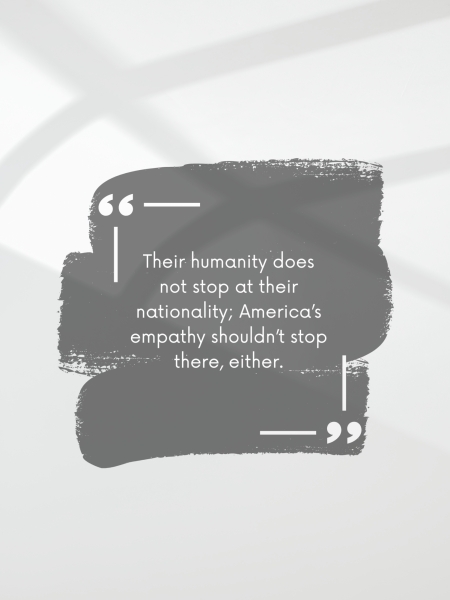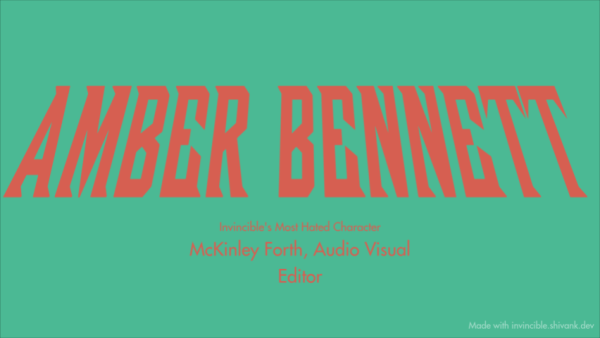Bacon Bits: Students need to analyze pledge
It’s hard to tune into any news source or social media outlet lately without hearing some type of controversy regarding the national anthem. But let’s put those issues aside for a moment to address one closer to home — an issue so close to us that we address it every morning like zombies, regurgitating a message of forced patriotism.
If an LHS student were asked to recite the Pledge of Allegiance there is a good chance that each student would know every word. But how many of them have ever thought about what those words mean? Or, like so many other Americans, how many people only mumble the words, conditioned to think that it is the right thing to do?
Students go to school to learn subjects such as math, science, English, history and … patriotism? It shouldn’t be hard to understand that forced patriotism isn’t patriotism at all, but schools still allow an environment that has the potential to guilt students into aimlessly pledging to a message that is outdated, confusing and wrong.
Before writing this off as a personally offensive attack, pause and take a long hard look at the words that are so controversial
“I pledge allegiance to the flag of the United States of America.” The opening line should be enough to make one think about its exact words. Does every American really give loyalty to the superiority of a piece of cheap fabric?
“And to the republic for which it stands, one nation under God, indivisible . . .” This is perhaps the most controversial line of the 31-word pledge. Nearly 10 percent of American adults say they don’t believe in any god. That makes many of those who say the pledge liars. But for a high school student, perhaps the one thing worse than being a liar is being called out in a class for not following the proper procedure with a hand over the heart, mumbled words and lie. Isn’t it easier to just sit down and keep one’s personal beliefs personal?
Many Americans might not want to think about the last line at all, but if it’s not addressed they may seem ignorant to the issues that the nation was built on.
“With liberty and justice for all.” Liberty is defined as the state of being free within society from oppressive restrictions imposed by authority on one’s way of life, behavior, or political views. To blindly agree that no one is oppressed in the United States, one must be listening to the same news reporters as too many other Americans because there are citizens being mistreated or even killed over minor issues because of who they are or where they are from. If the word “justice” doesn’t present a moral dilemma to an American in this era, there in lies a serious problem. Did convicted rapist Brock Turner receive justice by first only being sentenced to six months in prison and then actually serving only three months? It’s the crimes such as this that make “justice for all” just one more lie.
Another way to look at this line is from the perspective of someone who has a personal understanding of oppression. Kieran Garcia, a sophomore at LHS, decided to start sitting through the pledge around seventh grade when he started understanding that his culture, and many others, were oppressed from the very beginning of the United States. Garcia is a Native American (Nez Perce) and says that he will not stand for a pledge that represents a country that was built by the murdering of his people.
Not all Americans’ ancestors were murdered, mistreated and enslaved. Many people stand for the pledge to honor the American troops around the globe. First of all, the troops selflessly put their lives on the line for what they believe in, and they deserve thanks. Hopefully they believe in more than a piece of fabric, or a line that insinuates that religion makes a good citizen, or a line about justice that has been historically and currently inaccurate. If saying the pledge is one person’s form of support for the troops, it’s time to consider other ways to express patriotism.
It’s time to stop forcing patriotism on kids. It’s time for Americans of all ages to feel free to sit down (or stand up) for what they believe in. It’s time to take real action right here at home. People can focus on the national anthem when they can meaninglessly mumble the words to all four stanzas, but for now, Americans should think before they pledge their allegiance.






Aailee Fuson • Sep 29, 2016 at 6:04 PM
I completely agree with this! I do not say the pledge but I feel as if I am still pressured to stand while the others say it. I wish it was more acceptable to teachers and students for one to choose to sit through the pledge. Thank you for the article!